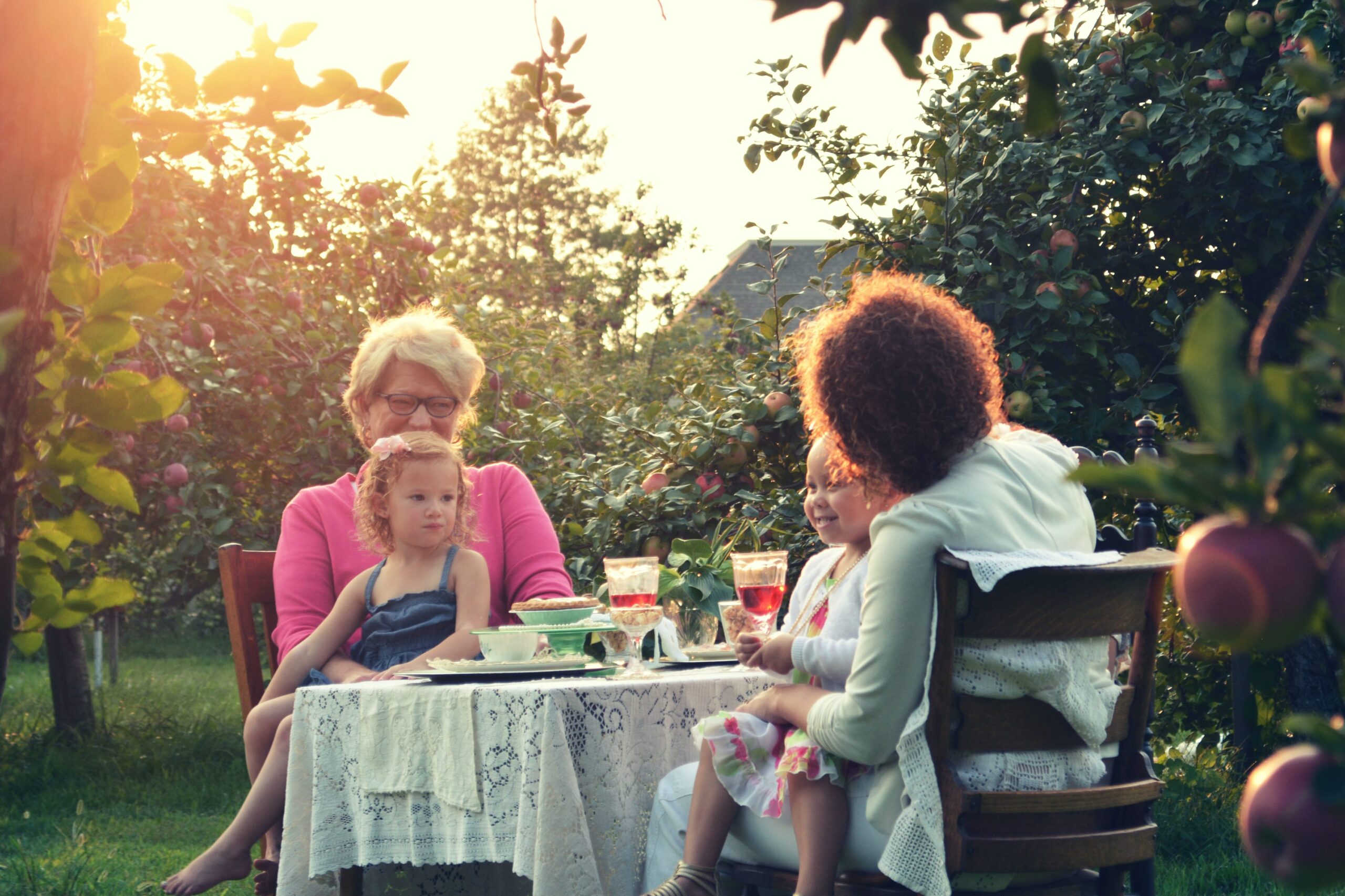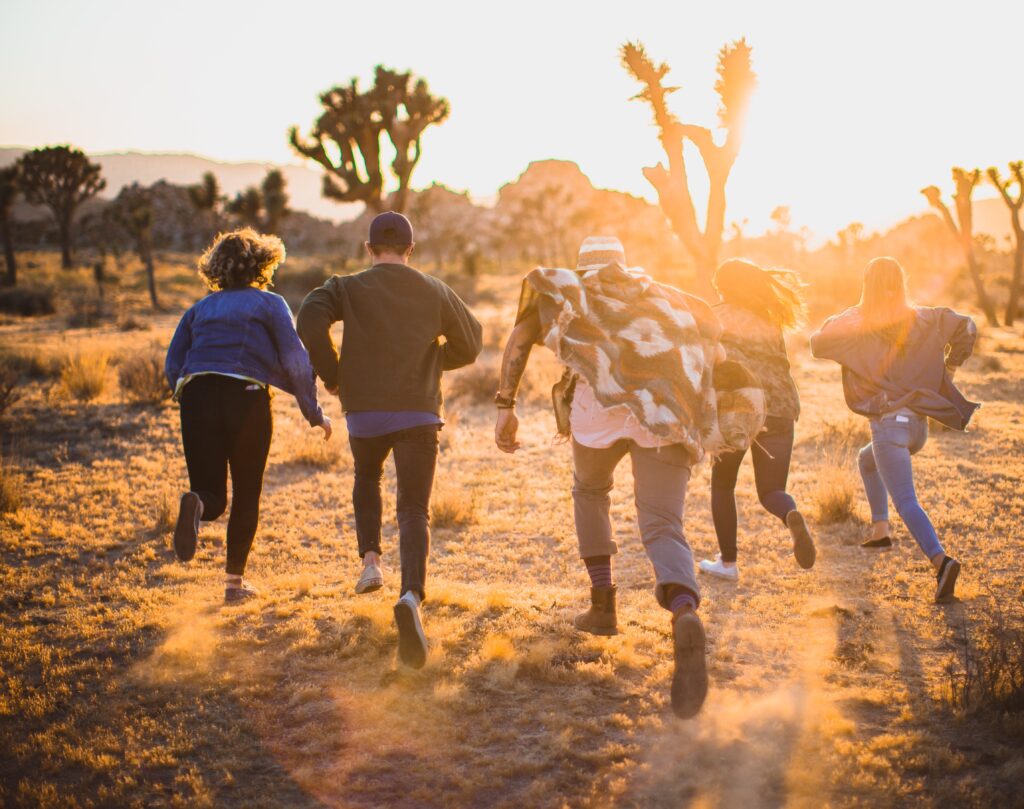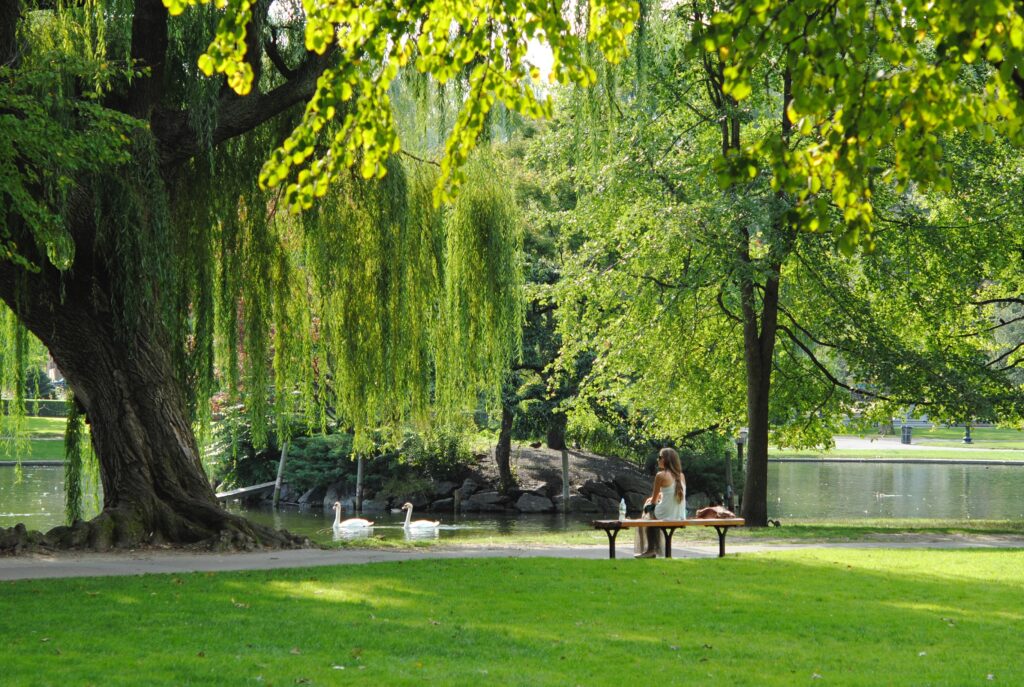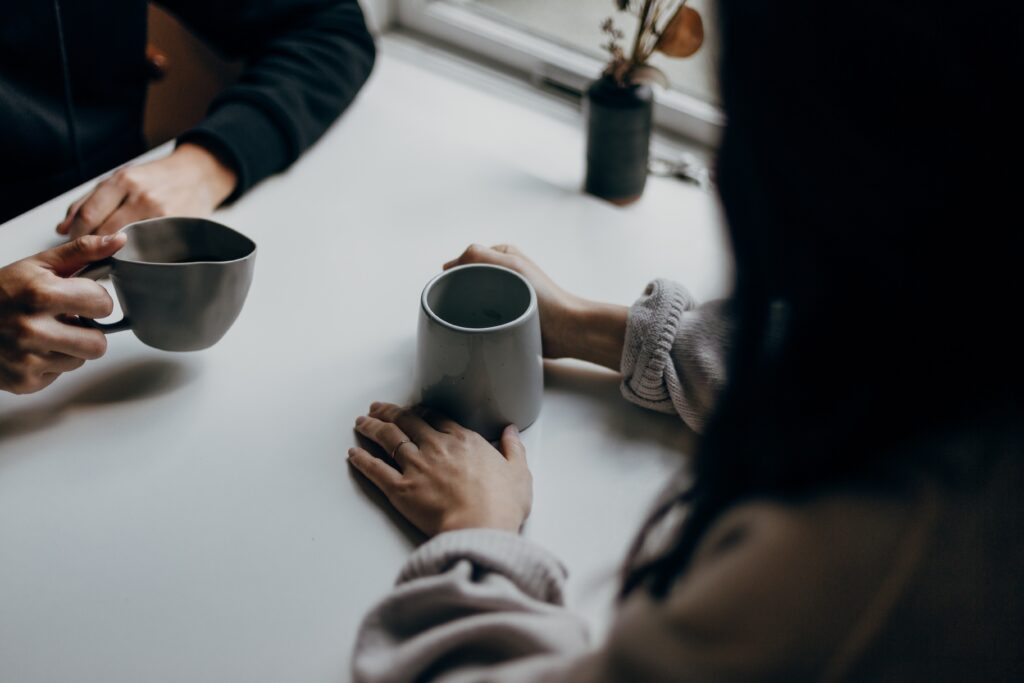15 Life Lessons I Learned in My 30s I Wish I Knew in My 20s

Do you ever wish you could go back in time and help your younger self figure things out? Or that you had an older, wiser sibling to give you sage advice? Sometimes I do! Here are 15 life lessons I learned in my 30s that weren’t obvious in my 20s. That I wish I knew about love, life and happiness.
1. Your thirties can be way better than your twenties
Adulting is a new experience in your twenties. At this point, most of us don’t know who we really are and what we want. Except for my one friend who was married to the hunky love of her life with a dream job at 25! Your early adult years lay the foundations for the rest of your life – through experiences, connections and life lessons.
We make mistakes, meet new friends, develop skills, see exciting places, find love and get to grips with what we do and don’t like. You learn life lessons in your twenties which, if you listen to them, can nudge you towards the right paths to take.
“Do not complain about growing old. It is a privilege denied to many.”
— Mark Twain
Turning 30 isn’t something to dread. As my glamorous aunt once told me: “You don’t suddenly turn into a gargoyle at 30”. I didn’t quite believe her until I let out a big sigh of relief on actually reaching the milestone! Our thirties are often more grounded years for our careers, homes and relationships. Most importantly, in knowing who we are and learning to love ourselves.

At 35, you still have youth on your side, but also the benefits of experience to keep building yourself and your life. Hopefully your earning power or savings might’ve grown. My life has been more happy and stable in my thirties. Apparently your 40s can be awesome in different ways too.
It’s a privilege to get the chance to grow older.
2. Prioritise quality time with those you love
In your twenties, you’re more likely to still have older members of family around. As well as other people you grew up with. Even though your twenties can be busy, remember to spend quality time with your loved ones:
- Find out about the lives of your grandparents; and their own siblings, parents & grandparents.
- Ask them questions you’d love to tell the answers to to your own future children.
- See if they will write down life lessons or stories from their lives in a notebook. You can keep this as a wisdom heirloom for your family.
- Tell them you love them and that you’re grateful for them, support them if they need it.
- Work out their love languages and show you care about them in the ways they appreciate.

Over the past decade, some of my own relatives passed away. Some suddenly or unexpectedly, and some at a ripe old age.
Make the most of the time you do have with them. Don’t regret what you didn’t say, or who you didn’t see enough when the opportunity is no longer there. Take some of the time you might spend on social media and Netflix shows that don’t really matter. Spend it on what does instead.
3. Not everyone does or should think the same as you
We make decisions through the lens of our unique top values, or what is most important to us. People prioritise financial security, career success, creative outlets, spending time with family, socialising, well-being, hobbies or supporting a cause, in different orders, with their time, money and energy.
These are not, nor should they be, the same for everyone. Variety is good for humanity. It gives our species a survival advantage as we discover new things and develop our broad collective knowledge and abilities. New discoveries are made through the variety of our thoughts and actions, as billions of people try different things they enjoy and are good at.
Varied preferences and abilities mean humans can live and thrive across many different environments. It gives us the adaptability to be the dominant animal species on our planet.
Life is much harder when we think everyone else should think or act like us; they don’t. Plus, if we want the world to be a more harmonious place, why not start with ourselves?
“Peace doesn’t require two people; it requires only one. It has to be you. The problem begins and ends there.”
– Byron Katie
When I can’t understand someone else, I’ve found it useful to look through the lens of different values and personality types. I’ve studied, for example, Myers-Briggs, the Enneagram, Human Design, the Four Tendencies, Love Languages or Attachment Styles. This helps with not taking our differences personally.
You can also learn new things and marvel at the variety of life if you switch the focus to calmly listening to alternative views. Rather than try to change people’s minds. This can leave you coming away with new information. Even if it is simply that some people think differently to you. If you struggle with accepting other perspectives, you could also try reading Byron Katie’s book Loving What Is.
4. You only get one body, so look after it
You only get one body for your whole life. This marvel of nature can carry you through tens of thousands of days, countless hugs and journeys around the world.
“Take care of your body. It’s the only place you have to live.”
– Jim Rohn
Eat healthy, unprocessed foods as much as possible. The Mediterranean diet has been consistently linked to better health and longevity (plus natural, nutritious foods can be super tasty). Enjoy nourishing your body with the foods that work for you personally. Learn more with the help of a nutritionist, blood work, genetic tests or intuitive eating. I notice how different things make my body feel afterwards, and do more of what feels good.

Exercise regularly by moving in ways you enjoy. Running when you hate it isn’t a good long term fitness strategy! Try yoga, or tennis, swimming, or whatever else might appeal to you instead. Try to exercise or mindfully walk outside. Spending time in nature has multiple physical and mental health benefits too.
As someone with only one ACL left after a skiing incident – don’t take silly risks in sports or life unless the potential consequences on your body seem worth it to you. Hydrate!
Your body includes your endocrine, nervous system and so, your mental health. Minimize stress where you can. Try regular meditation or mindfulness practices, so you can observe and respond to your life. Rather than over-reacting and stressing about things.
Wear sunscreen. UV-related premature aging will catch up with you sooner rather than later. As will over-doing substances like alcohol. Think what you’d have to do to your body – other than boozing – to feel as lousy as a hangover does the next day.
60% of premature deaths in the US are attributed to unhealthy lifestyle choices. Get into good habits now by taking responsibility for your own body staying fit and healthy for longer. I like Dr. Peter Attia’s book Outlive for health-optimising longevity. Enjoy and appreciate being in your body. You won’t always feel as energised as you do in your twenties.
5. Be curious about what difficult emotions are telling you
“We met for a reason, either you’re a blessing or a lesson.”
– Frank Ocean
Difficult situations can teach life lessons that help us grow mentally and emotionally. Even if they feel painful at the time.
It could be that a perceived slight from a friend; relationship breakdown; or being overlooked for a promotion at work reminds you of a past rejection. Try not to focus negative energy on a person or situation in the present. Instead, take steps to learn from your experiences, and resolve unhealthy patterns that come up.
It helps me to think that there are no “bad” emotions. There are uncomfortable ones, and some feel better that others. Perhaps take emotions as messages from your body (and perhaps your soul or the universe) about the right steps to take on your life path. Focus on the message (your feelings), rather than the messenger (who or what you’re responding to). Meditation, journaling, or speaking to a therapist, coach or mentor can help you get clearer on this.
Anger, sadness or jealousy can be signals that it’s time to change something in your life. They might show you what really matters to you; or how you need to grow next. Work on allowing the full spectrum of your feelings to come up, and expressing them appropriately.
“When you realize that suffering and discomfort are the call to inquiry and to the freedom that follows, you may actually begin to look forward to uncomfortable feelings.”
– Byron Katie
6. Honest, confident, loving communication is a key life skill
Whether it’s sharing loving words or worries with a partner; presenting your case when negotiating; or public speaking at work. Honest, loving communication is key to living a life that’s right for us and reducing misunderstanding from confusion or assumptions. Also, bottling things up can lead to stress and illness from carrying bitterness or resentment.
“I wish I’d had the courage to express my feelings.”
~ “The Top 5 Regrets of the Dying” by palliative care nurse Bronnie Ware

Open, loving, confident communication will also get you far in life. As a dating coach, I often suggest clients aim to show up as the best version of their true selves on dates. Knowing how you truly feel and what you think or find important is key to this. Which is one of the reasons why making intuition your superpower is so important.
I believe that, when you operate from your higher self or intuition, (rather than fear) things will come into and leave your life in calibration to this. You can’t lose what’s meant for you, or keep what is not. Life both energetically and logically works that way.
Certain people and experiences usually come into your life from a place of alignment (luck is also at play to some extent). For example: you’ll attract and be attracted to a romantic partner for how you are showing up at your current stage of personal growth. Job offers will come that your experience and personality is a match for. Your health often reflects your daily habits. This encourages us to be our true and best selves to attract the things that are right for us. And avoid trying to force things that are not.
If you pretend to be someone you’re not, you won’t attract people to the real you. Eventually the mask will slip, or you’ll tire of the effort it takes to pretend. You’ll also be taking time away from people who are aligned with the real you. This applies to potential friends and work roles, as much as romantic partners.
The loving – or kind – communication part is also important. The Non-Violent Communication method can help with this – to be more effective and considerate in your interpersonal dealings. Before sharing challenging or impactful information (really it can be applied to any communication) try asking yourself:
“Is it true; is it kind, or is it necessary?”
~ Socrates
Gossip, reactive opinions, speaking from ego (or for the sake of it) rarely meet all three of these conditions. If you find sharing thoughts in groups difficult, I highly recommend trying public speaking improvement tools like Talk Like TED authored by Carmine Gallo. Or joining a Toastmasters group near you.
7. Notice what makes you feel good (and what doesn’t)
Whether it’s time in nature or being part of a supportive community; start noticing what and who supports your happiness, health and energy. And do more of it! Also note who, what and where give you a physical, mental, emotional or spiritual hangovers (or drain you).
You only have this time once. You might as well spend it in ways that amplify joy and growth – for yourself and the world around you.
Perhaps your happiest times are when you’re gardening, hanging out with your besties or dancing. Maybe it’s whilst doing a hobby or sport you love. On the other hand, perhaps staying out drinking until 3am or scrolling for hours on social media doesn’t leave you feeling great.

Start discerning between what you “should” be doing for fun or work; and what you actually enjoy and benefit from. It’s your life and you live the consequences of your decisions.
Working out your personality type with a Myers Briggs test or The Four Tendencies quiz can help you understand what drives and energises you most. Plus, you’re more likely to meet people who share the same interests and values as you when you do things you really enjoy. Community is super important!
8. Make peace with your parents and childhood
Even if your parents are no longer with you, making your own peace with them and your upbringing can make huge positive shifts in your life. This could be through therapy; reading wise books (such as by psychotherapist Gabor Maté); writing letters and burning them; doing inner child work; or personal development courses. Course-wise, I loved iDiscover360 and many friends found the Hoffman Process super helpful.
Having major unresolved issues from a tough (or even imperfect) childhood can take away your freedom to choose how you respond to adult life. This often happens subconsciously until we realise what’s going on. Often, if we don’t dig up and process subconscious stuff that we’ve buried deep down inside, it will resurface uncontrollably in other ways.
For example, you may choose relationships that remind you of, or are the opposite to, unresolved childhood dynamics. You could end up with a career, hobby or partner that makes your family happy rather than you. Or that finally helps you, on some level, feel “good enough”.
“The best investment you can make is an investment in yourself. The more you learn, the more you’ll earn.”
– Warren Buffett
The money, leisure time and energy you spend on personal development – including healing family dynamics – can come back to you many times over if you are committed to it. The parent-child relationship is a formative, close and complex one. You don’t want to regret making peace with your parents whilst you can. Saying you love or are grateful to your parents can make their day, month or year. Plus, if you have kids of your own, you’re less likely to pass down subconscious dysfunction.
9. Look after yourself a little more than you do anyone else
Over-giving to others can seem like the nice thing to do. But it’s often not the kindest in the medium-to-long-term. You can become burned-out, resentful, or even suffer from health issues from looking after other independent humans at the expense of yourself. Listening and responding to what your own mind, body, spirit and emotional health needs each day as much as possible is key for this.
It’s much harder to truly love from an empty cup. Fill your own cup with self-love and care first; then love can overflow to everyone else from it. Otherwise you’ll be loving people in your life from an empty-love tank or burn-out place, in order to receive love and care. Rather because you’ve nurtured yourself enough to have plenty to go around.

Having healthy boundaries is key here. If you know you’re pushing yourself or people-pleasing too much – perhaps politely decline more requests. Whether that’s another project at work; a night out when you’re feeling run down; or a date that doesn’t feel right to go on. Over-giving or saying “yes” too much is a shortcut to exhaustion and resentment. Make “no” a default answer unless something truly feels right.
I’ve personally stopped agreeing to things that I would resent afterwards. This doesn’t mean I don’t do things for other people. Often doing something for someone else makes you feel great. It does mean declining invitations that you know you’ll be annoyed that you agreed to afterwards.
If you feel resentful about someone else “making” you do something as an fellow adult; perhaps try to reframe why you are saying or said “yes”. Otherwise, reconsider whether the situation is really worth overstepping your boundaries for. Or see if you can negotiate something you are both happy with through loving and honest communication. This can prevent feeling like you abandoned yourself. As well as reducing potential anger, burnout or resentment resulting in the breakdown of the relationship in any case.
We all have limited time and energy. Being intentional with them is crucial to being able to live a life that truly matters to you. You can love other people hard, but love yourself just as much (or maybe a tiny bit more). If you don’t look after yourself as an adult, no-one else will.
10. Who you spend your time with is critical for your health, happiness, love and success
“You’re the average of the five people you spend most of your time with.”
– Jim Rohn
Humans are social creatures, and we’re clearly influenced by those around us. Who we choose as best friends, romantic or business partners profoundly affects our life. Fitting in with the social norms of our community is a powerful subconscious draw. The habits and risk-taking tendencies of our peer group affects our own through changes in our neurochemistry.
What’s more, the people you spend the most time with can determine whether or not you achieve your life goals. Negativity, fixed (vs. growth) and victim or external (vs. internal) locus of control mindsets can quickly become the norm. People who are further ahead than you are in different life areas can help you aim higher. And also expand what you think is normal or possible.

Our time is limited, no matter who you are. Consciously choose who you spend your precious time with. At first, letting go of existing stale or stifling but comfortable relationships can seem daunting. Making space for new friends, a romantic partner or colleagues who inspire, uplift or feel in alignment can seem scary or lonely when you haven’t met them yet. Like leaping from one branch and not knowing if there’s another to grab onto. It may seem easier to not make the effort to meet new people. Or to stick to who or what you know.
Like most things in life however, if you intentionally make that space, you’re more likely to find people you align with. For example, if you keep dating someone because you’re scared to be alone, you block yourself from meeting a partner who is more right for you.
Who we give our time and energy to is usually a choice. Especially our free time. Choose close relationships with people who help you feel loved, inspired and to grow. Be wary about those who drain you. You deserve to be around people who lift you up and help you shine. Seek out these people to learn from, love and mutually support.
11. Notice moments of beauty in life
Nature shares its beauty with us all the time. We’ve even evolved to experience awe (and corresponding mental, physical and social benefits) from it. With our phones in our faces and earbuds in, it can be easy for our minds to be elsewhere as we go about modern life.
Being mindfully present to what you can see, hear, feel, smell and taste in your environment can help reduce stress as you stay calm in the here and now. Rather than worrying about the past or future that’s not right in front of you, and may not even happen. Try keeping your phone in your pocket or bag and notice what’s around you when you walk outside instead.
Feeling out of touch with nature in cities can be easy without realising it. Research found the risk of mental illness was 55% higher in children with the lowest exposure to, versus abundant, green space.
I aim to stop to smell flowers that I walk by where possible. I love seeing the sunlight dancing through the trees.
Try learning the names and characteristics of local plants and animals. Even if there aren’t many trees or flowers where you live, you can always look at the sky. Perhaps notice how blue it is each day, or whether clouds are floating by. Check whether you can see the moon on clear nights and look out for shooting stars.

If you like dogs or birds. notice them as you walk around the city. If you admire architecture, cars or fashion – appreciate the beauty of design that you pass by every day. And if art or music make you grin: visit galleries, museums and performances often. Maybe a local shop has a beautiful display or a neighbour is nurturing their garden.
It’s easy for our minds to focus on negative aspects of life and the world around us. Just look at what mainstream news focuses on to grab our attention. This negativity bias is thought to stem from how humans evolved. If we stayed alert to dangerous things around us, we were more likely to survive, reproduce and pass this trait on.
Noticing beauty can boost awe and gratitude, and support our mental and physical well-being. What’s more, it’s all around us to enjoy for free if you just start to notice it.
12. Seek moments of connection
Whether it’s from the rise of online instead of in-person connection; cities where our neighbours are strangers; a lack of accessible communal spaces and activities; or ongoing social issues from the covid pandemic: many countries are experiencing devastating loneliness epidemics.
The U.S. Surgeon General recently warned that insufficient social connection has a similar impact on longevity to smoking 15 cigarettes a day. Dr. Vivek Murthy explained: “You can feel lonely even if you have a lot of people around you, because loneliness is about the quality of your connections.”. A 2023 UK poll also found that nearly 60% of 18-25 year olds regularly feel lonely.
In a world where everyone with the internet is “connected” to everyone else; loneliness and a lack of real connection are pervasive. In big cities like London, you’re surrounded by millions of people. With a lack of village-style community or family nearby however: many still feel isolated.

To combat this, I like paying attention to the little every day moments of connection that happen all around us. It might be a friendly chat with a shop assistant or barista. Or a smile from someone walking past you on the street. Checking out events and social groups whose activities align with your interests and values can help too.
After all, most other people also want more genuine, joyful and supportive connections. In a metropolis, there are most likely dozens of people on the other side of your apartment walls; walking outside on the pavement; or living across the street with similar desires and fears to you. We’re all human and trying to make sense of and enjoy our lives.
The realisation that each of us are a part of humanity as a whole; experiencing “oneness” with other people; and focusing on our similarities can help us feel less lonely. Practices like meditation — that help us dive below our busy minds and to see this reality more clearly — can help too.
I aim to meet up with nurturing friends several times a week, and check in with people regularly to see how they’re doing and express my appreciation. If it feels good, make the effort to have an in-person conversation (or at least a call) with someone every day.
Being open to finding out more about people around you can help increase serendipity and luck in your life. The science behind this is discussed in Richard Wiseman’s book The Luck Factor.
If you feel down, think about some of the beautiful art, people, music or nature you’ve experienced recently. You can spend a minute making a list of five such things you’re grateful for every day or evening. Gratitude practices can boost your mental well-being by calming down your nervous system and focusing on joy.
13. Get clear on what you want, then go for it
Being intentional about life, such as: who you want to date; the career you’d like to have; where to live; and your community – makes you more likely to meet your own version of success. And also less likely that you’ll wake up one day and wonder whose life you’re actually living!
Learn to listen and trust your intuition, as well as what others around you or society thinks is right. If you get good at knowing and listening to yourself, eventually you’ll know pretty quickly what’s right for you. You can then make better decisions faster and with conviction.
You can do this in many ways. With vision boards; meditating on your future life; or free-writing to get clear on what you really want. Journaling for a set amount of time or number of pages each day can help calm racing thoughts and answer questions you’re musing over. Write a question out at the top of the page, then answer it with whatever comes up in free flow. Don’t over think it or try to write perfectly – this is for your eyes only. I learned this method for clarity from epic author and creativity expert Julia Cameron’s morning pages practise.
“I wish I’d had the courage to live a life true to myself, not the life others expected of me.”
~“The Top 5 Regrets of the Dying” by author & palliative care nurse Bronnie Ware
Studying with the Flow Research Collective, I learned to write a mission statement for my life – a kind of raison d’etre that I use to make decisions. It helped me to look at the UN’s 17 sustainability goals to note which one(s) I felt most drawn to help solve. You can choose a specific area – e.g. a geographic region or segment of society – to focus on under that goal.
I then have big professional and personal goals that feed into my mission statement. These are slightly intimidating goals that could take a year or a few to achieve (like writing a book). My weekly, monthly and annual goals support these. Having clear, flexible goals keeps me motivated to stay on track with what’s important.
Breaking these goals all the way down to each week, as well as having a general big direction to aim for, can help you know the next steps to take. Once you know, go for it! Studies show that we tend to regret the things we wanted to but didn’t do or delayed, rather than the things we tried and failed at.
I also believe there are no failures. I try my best but trust that what comes and goes from my life is meant to do just that. If something doesn’t work out, I aim to learn from this and move on towards the right direction.
14. Seek advice from people you respect in specific life areas
Some of my best relationship mentors aren’t great with money. The best investor I know is hopeless in love. It’s important which way round I ask them for advice. You might not take financial tips from somebody in massive debt, or relationship advice from a perpetually unhappy dater. You wouldn’t line up at an Apple store for a curry; or Dishoom hoping to buy the latest tech.
If you ask the right people for the right advice however: their wisdom can save you time, energy, heartbreak and money.

Just because someone is confident, clever or is older than us, doesn’t mean we should follow them with a “lemming” mindset on everything. Seek and take advice from those you respect in different areas of life. Stay on the look out for mentors who you look up to in different ways. Who might support you with their specific zones of genius wisdom.
When taking advice from someone more experienced than you; first consider whether you admire their position and experience in that area of life. When we’re kids we think our parents know everything. This mindset can follow us into adulthood with people of perceived authority if we’re not aware of it. Also, as you grow and face new challenges, your mentors will most likely change. Stay open to new ones as you progress.
15. Don’t sweat the small stuff
“God, grant me the serenity to accept the things I cannot change, the courage to change the things I can, and the wisdom to know the difference.”
~ “The Serenity Prayer”, Reinhold Niebuhr
Something I got to grips with better in my late 20s, is that not much in life really matters. This can sound depressing or liberating depending on how you look at it. It means most of the things you worry about today won’t have a huge impact in the long run. Most situations that feel like a big deal now, won’t seem that way in a few years time.
This realisation can help you live according to your own principles, as other people’s fleeting views don’t really matter. Most people are more worried about themselves anyway. If you mess up a presentation, interview or date, don’t sweat it. There are usually other chances or directions you can go down.
“I wish I had let myself be happier.”
~“The Top 5 Regrets of the Dying“, Bronnie Ware
Try to always see how many options you actually have. If you feel trapped in a situation, spend 10 minutes brainstorming the potential choices or outcomes without judging them or deciding which to take.
An old mentor used to say that, as life progresses, we still face challenges; just hopefully better ones. You may be stuck on which awesome holiday to take; job opportunity or partner to choose; or house to buy. If you keep growing and bettering yourself, the problems you face in five years time may be problems of your dreams now.
This is the only time you’ll live this moment, this day, this decade of your life. We have finite time on Earth and it goes fast. Try to enjoy the small, juicy things in life rather than worrying about insignificant annoyances.
If you’re feeling down, help others who are less fortunate. Write down five things you’re grateful for. Get into nature. Move your body. Chat with somebody who makes you smile. Create rather than consume. Remember feelings are like waves, they come and go. Learn to accept, observe and respond to, rather than “being” caught up in feelings, and your life will improve.
‘Today is the oldest you’ve ever been, and the youngest you’ll ever be again.’
~ Eleanor Roosevelt
I hope you enjoyed these life lessons and enjoy musing over them. Let me know your thoughts in the comments below. You can read my coaching blog and sign up to get a monthly newsletter on the best personal development, wellness and travel I come across here.
Leave a Reply Cancel reply
Let’s Stay Connected ✨
Get wellness event invites, personal growth insights, and powerful coaching prompts, plus recommended reads and inspiration to help you thrive each month.